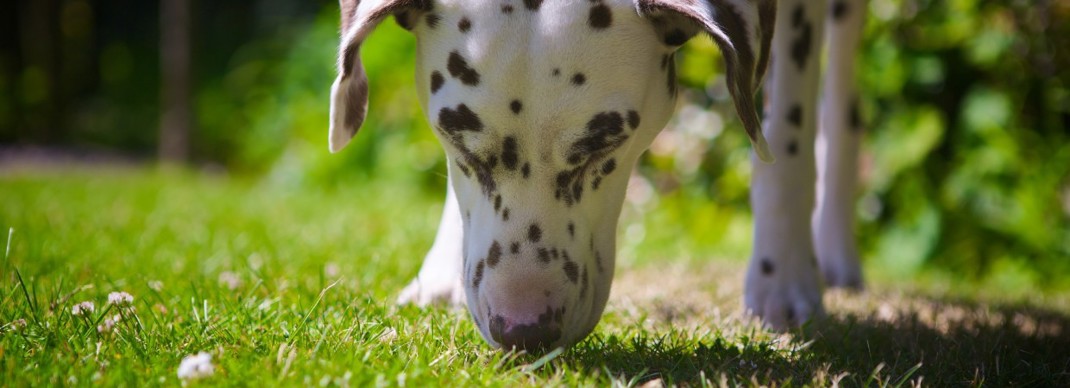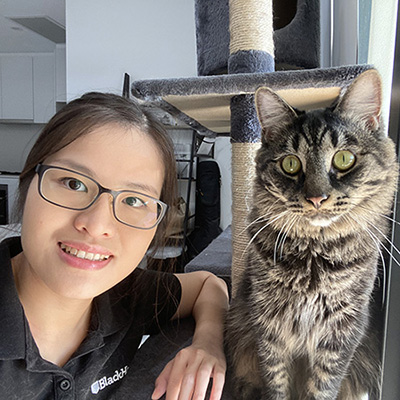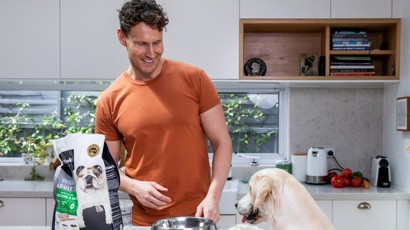Dog Poo and the Environment

Humans and their pets have a impact on our environment – in a multitude of ways. One aspect is the disposal of body waste: We have sewage treatment plants for neutralising human ‘after-effects’ and there are actions dog owners can take with dog poo that can minimise the impact of doggy waste.
What’s important to realise is that apart from the unsightliness of solid deposits, and urine puddles and stains in places they shouldn’t be found, that these waste products pose a public health risk.
They can contain infectious agents or parasites that might harm the health of other dogs, but also you and I.
For this reason, councils or local authorities in Australia and New Zealand require dog owners to pick up their dog’s poo when in public areas. Some supply biodegradable bags and appropriate bins for this purpose.
Here are some doggy-poo tips for protecting the environment:
- Always carry a bag, or use those provided in public areas to pick it up when you’re out.
- If possible, use biodegradable bags.
- ‘Swoop the poop’, meaning clear away the waste as quickly as you can.
- Never allow your dog’s poo to be washed down drains or be left in garden beds.
- Be sure not to put their waste in recycling bins. Designated poo bins are best.
- Be sure to wash your hands after going out for a walk and picking up any waste.
- Worm your dog regularly, to counter the risk of intestinal worms
- Encourage those who are sick, immunocompromised and the elderly not to pick up after dogs if at all possible.
Garden Myth
A common myth about dog poo is that it is safe to bury dog poo in the garden. Be aware however that it takes a lot of time for it to degrade into the soil, and for the parasites that it may contain to become harmless.
Parasites such as hookworms and roundworms can live for years in soil where dog poo has been left to break down, risking further animal or human infection.
Many people prefer a DIY system when it comes to disposing of dog poo and it is easy and cost-efficient to set up your own waste disposal system. Without doubt, worm farms and dedicated dog poo compost bins, as opposed to normal garbage bins or plastic bags, are the best way to environmentally and efficiently deal with pets’ waste. Worms thrive on dog poo and even dog hair, so if you want to care for the environment, try them! The result is great for the garden too.
Alternatives to Dog Poo Bags
The best bags are biodegradable ones – available at pet stores and supermarkets. However, if you don’t have them, think outside the bag – re-use! Different types of bags are suitable for picking up after your dog such as used lunch bags, bread bags, cereal bags, fruit and vegie bags, chip bags and even dog food bags. If they’re not recyclable, you can at least put them to good use before disposal. Some people even use old newspapers or paper doggy-poo bags, though you need to be more careful with these, for the obvious reasons!
Other Poo Solutions
Dog poo processing units can be purchased, and often buried in a backyard as another long-term solution. These work in a similar way to composting toilets on boats. The dog poo is placed into these unit and soaked in an enzyme solution which breaks down the waste leaving an odourless, harmless residue to soak into the soil.
All things considered, dealing with poo is part of being a responsible dog owner. Be sure to safeguard the health, wellbeing and sanity of your friends and family, but also the wider community who has an interest in ‘keeping it clean.’ We all know there’s nothing more upsetting than witnessing a pet that isn’t well cared for, and this extends to our behaviour as pet parents while out walking our dogs.



